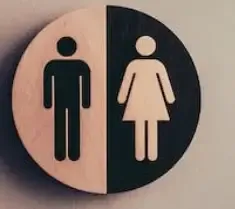Renewed government drive for gender-based budgeting
A National Policy for
Women has been proposed by the Development Monitoring and Evaluation Office
(DMEO), a division of the NITI Aayog, to increase gender equality and female
labour force participation in the nation. To standardise gender-based budgeting
across all ministries in all states and Union Territories, the DMEO has also
campaigned for the creation of the Gender Budgeting Act. Numerous studies have
shown that the covid-19 epidemic has pulled women out of employment globally.
The NITI Aayog's campaign for gender budgeting is undoubtedly a necessary and
positive step in the correct direction in light of this situation.
Since 2005, when India
started producing gender budgets, numerous gender-related concerns have come to
light, like the underrepresentation of women in the labour field, the harmful
effects of covid on women and girls, etc. How much real progress have we made
toward gender-responsive budgeting so far?
As shown by numerous
authoritative studies, I don't believe we have made much progress at all. This
bleak situation is shown every year in the Global Gender Gap Report from the
World Economic Forum. In every area, including safety, workforce engagement,
health, and well-being, women are treated very unfairly. Women's rights
attorney Flavia Agnes said during a panel discussion on ET NOW that we are only
pretending to care about gender balance and equity.
Furthermore, our
administration keeps disputing any such damning evidence. The fact that India
currently occupies the 140th spot out of 156 countries in the world's gender
gap rating is quite humiliating, Agnes continues.
Can India overcome its
most pressing gender challenges by mainstreaming gender budgeting? To promote
gender development, very specific actions must be implemented. To make sure
that our current budgets truly function, we must first establish efficient
follow-up systems. The government must also be open and honest about the
results of the budgets, and if necessary, adjust its course. Second, it is
necessary to increase the gender responsiveness of several current social
programmes. For instance, even though women are the Jal Jeevan Mission's main
beneficiaries, men make all of the decisions relating to water supply,
distribution, etc. Women manage the water supply in their homes by going to get
it. There is a disconnect between what we want to accomplish and what we are
doing, says Tara Krishnaswamy, co-founder of Shakti. This is because we
neglected to take such important factors into account while formulating our
policies.
"Our lack of the
appropriate analytical tools is the bigger issue. There is enough research
being done on this topic globally, so the bigger trends in our efforts to
advance gender equality are clear, but we lack information on the specific
areas where we are failing. Are there any areas where we need to improve gender
budgeting, its application, or the way we treat women in general? To be able to
find and address the major policy flaws, we require thorough economic analysis,
says the author Krishnaswamy.

